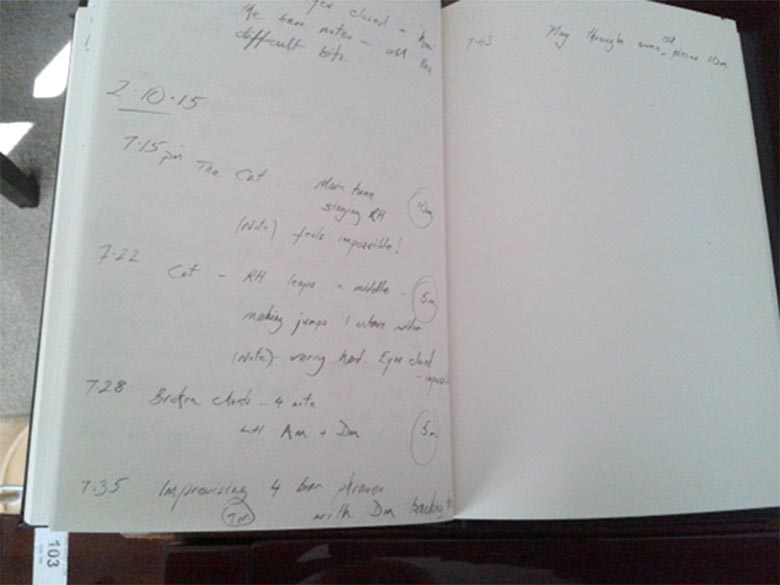“I don’t know how you can say that! She practices lots; she’s always at the piano”
This was how a mother responded when I dared to suggest that her talented daughter needed to practise more.
A ‘practice’ session can so easily turn into a ‘play through all the bits I know already’ session. Enjoyable? Yes. But will we have made any progress?
Practising is working on our weaknesses, or practising the bits we can’t yet play, or play as well as we’d like. It needs focus – a level of concentration that might feel like hard work. If we want to seriously move our playing forward, we need to confront the things we know we’re not good at.
This takes courage. And determination
For example, we may know we can’t play that bit on line 4, but simply can’t face working on it; “It’s just so hard” we reason. Well, yes it probably is hard. But look at it properly. Try to work out exactly what’s difficult, and what’s required to master it. We might just sort out the problem.
Playing the piano is one of the greatest joys in the world, and to do it well, we need to work at it.
Maybe, after a stressful day, all you feel like doing is playing some pieces you already know. If you’re feeling low, stressed out or exhausted, this might be just what you need. It can often be very cathartic, and calming. But don’t call it practising. It’s playing.
How to start practising…
Ok, so we’ve accepted that we need to work a bit harder and we’re ready for a proper practice session. But how to start…
Advice often goes: start with a few scales, warm your fingers up, play through a few tunes you know. In other words, ease your way in. But if we are going to get the most out of our time, we need to concentrate, and not be thinking about a conversation we had earlier, or an appointment we’ve got tomorrow. Try starting your practice with something you find difficult. Something that requires mental focus. For example: 10 minutes singing the melody of a piece. Or if that’s easy, sing the melody whilst playing the left hand. Or it could be working out the Timing of a bit you never seem to get right.
Making the most of your time requires some organisation
So let’s say we’ve mentally prepared ourselves to do a bit of work. The following suggestions maybe helpful:
- Have a timer to hand and set a time-limit to your practise session, even if you’ve got plenty of time. Choose a timer with a gentle sound, not a clockwork mechanism with a loud bell. Great for a noisy kitchen, not so good when you’re trying to zone-in at your piano.
- Get a ‘practise notebook’. Find something you like the look of, something you’ll enjoy writing in, rather than a spiral-bound jotter from the local shop.
- Decide on a task, write it down, with date and time, and set a time-limit. For example, ‘last 2 lines, LH’ or ‘contrary motion scales. 5 mins’.
- Save playing through something you already know until the end. Finishing a session on a positive note makes us want to do more the next time. As opposed to finishing when you’ve had enough or get a bit fed up.
Be warned: When we organise our practise session, time can often pass very quickly. But don’t take my word for it. Get planning!


